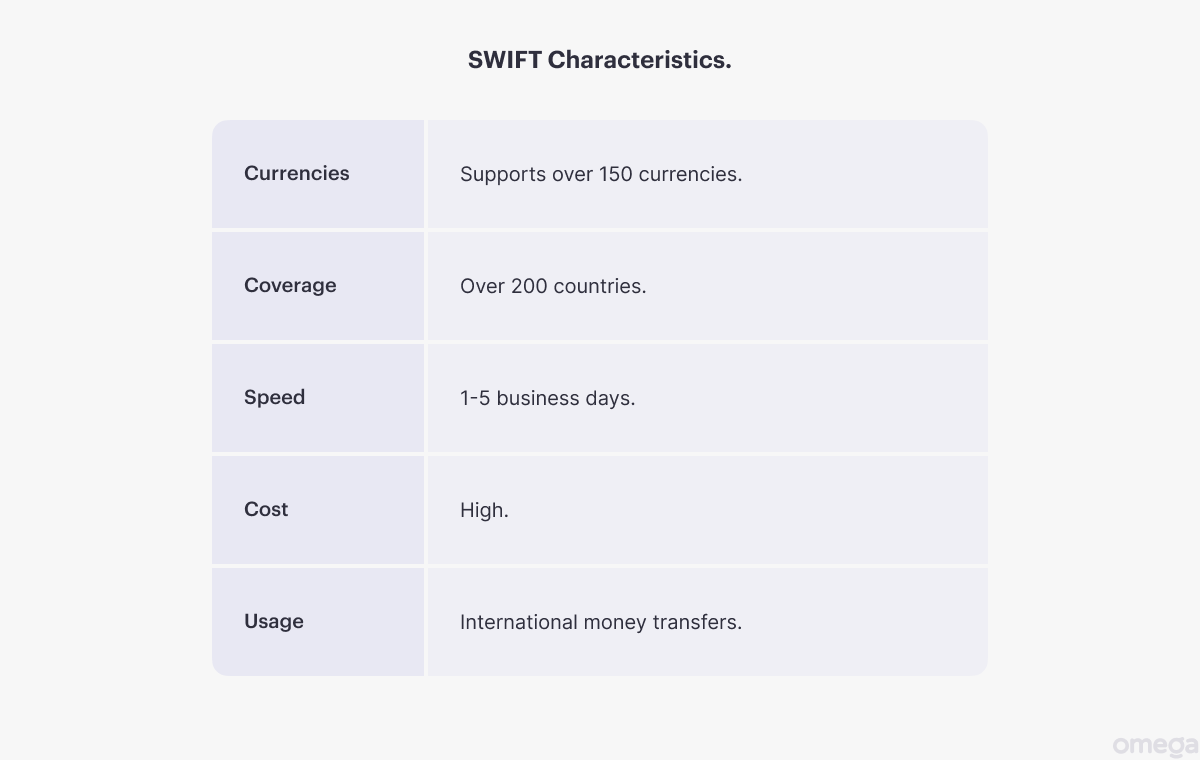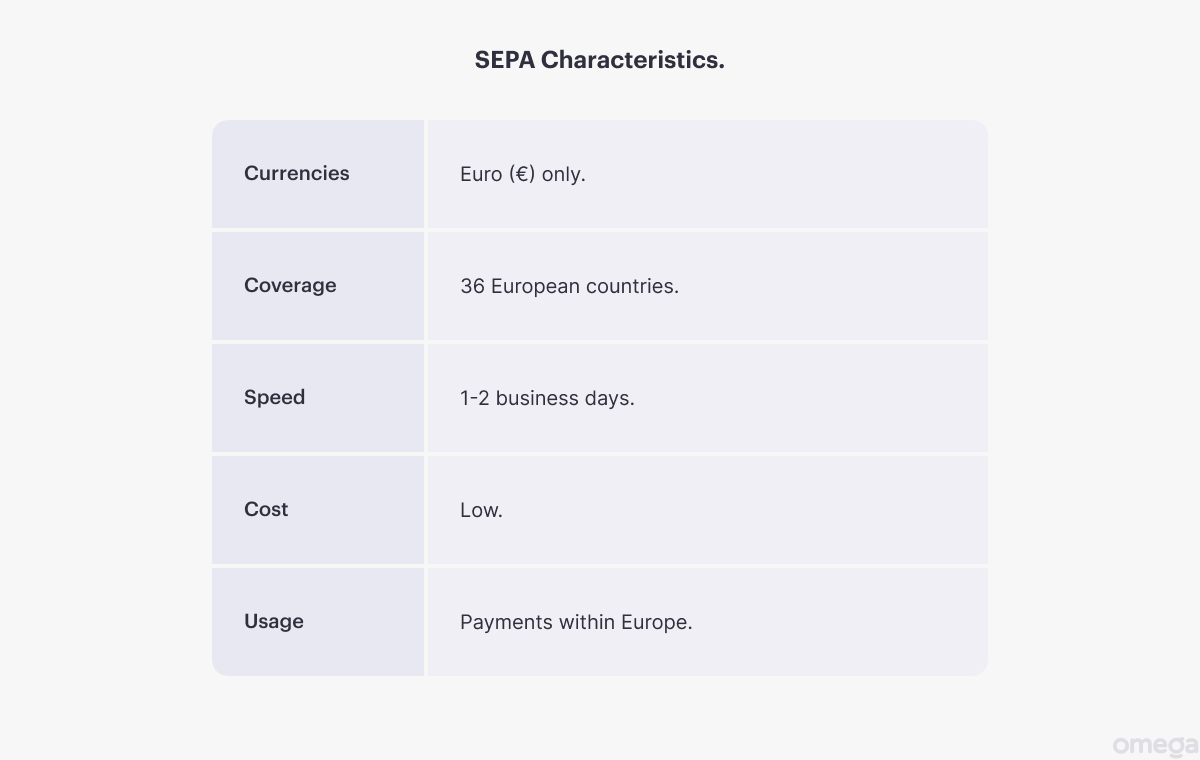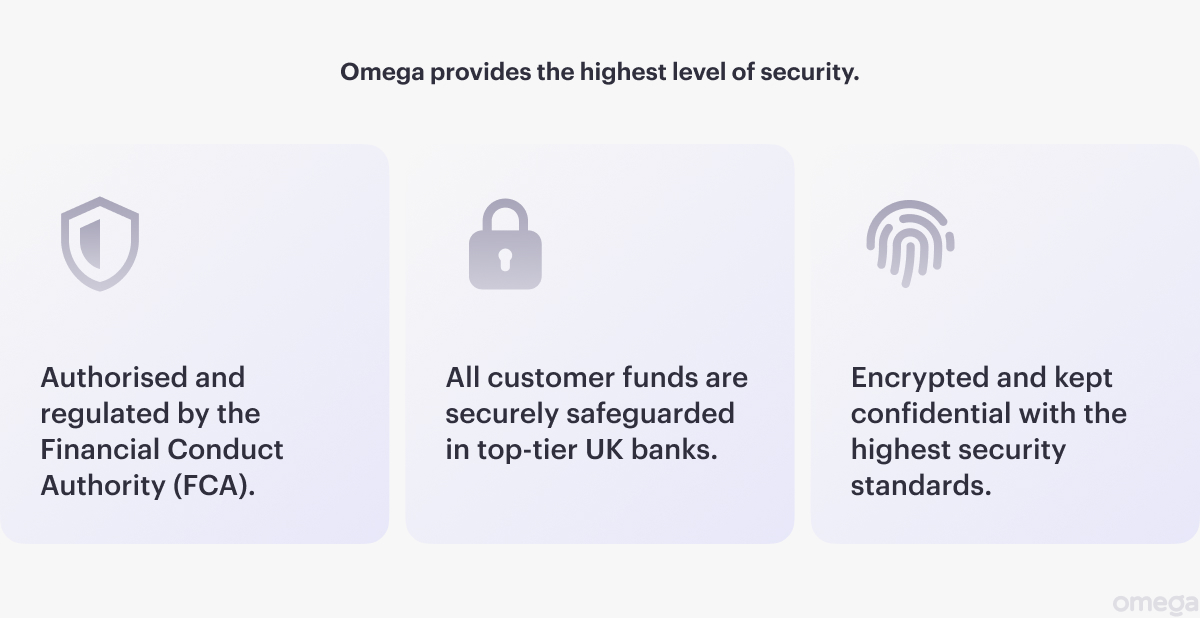Any business, especially those with an international aspect, must have a way to quickly send and receive payments. It doesn’t matter if you are opening a new e-commerce wing of the enterprise or using angel investments for a new startup. Safe, compliant, and reliable access to payment efficiency is crucial to your future financial health.
When you first begin to explore such transactions, you will hear a lot about SEPA vs. SWIFT payments. Both these systems help business owners of all sizes find ways to fulfil financial needs. While they are certainly beneficial, you will notice a difference between SEPA and SWIFT payments that is worth exploring before signing any contractual obligation or service agreement.
At Omega, we want to do our best to provide crucial information so you can make a well-informed decision about opening any business account. Here is a quick overview of the difference between SEPA and SWIFT payments.
What is SWIFT?
SWIFT is an acronym representing the Society for Worldwide Interbank Financial Telecommunication, which was established in 1973. The goal of this member-owned cooperative is to provide safe and secure financial services for any member needing to cut through the red tape of working with different international regulations or oversight.

You gain access to a broader range of countries when you join up using SWIFT or SEPA. For example, SWIFT has a payment network extending beyond 150 countries – all connected through financial institutions and standardised codes.
Unfortunately, this service includes the use of bank codes (sometimes referred to as “SWIFT codes”) and often comes with higher fees as every institution your money moves through may charge a handling percentage.
The trick is finding a platform like Omega that can streamline this process, especially when working with high-volume or cross-continental transactions at competitive FX (Foreign Exchange) rates.
Check the SWIFT / BIC code online for money transfer purposes between banks of different countries or internationally.
What is SEPA?
SEPA stands for the Single Euro Payments Area. It is extremely similar to SWIFT in its goal of streamlining international payments but works primarily through Euro-dominated member states. This commitment to the EU is why you can only use Euros (the currency of the European Union) as part of SEPA. Some non-EU countries are allowed (like the UK after Brexit), but these transactions may carry higher fees.

The beauty of SEPA is the speed of transactions and the little to no fees for any member country exchange. This means that when you work with Omega’s multi-currency accounts, you can access SEPA transfers and the flexibility of holding funds in over 14 unique currencies for EU-based payments.
What is SEPA and SWIFT: Exploring Differences
Both SWIFT and SEPA payments are essential if you wish to do business in the international market. You will get unfettered access to countries, markets, and beneficial deals that would normally cost extremely high fees or be part of a “grey” area concerning FX.
When you are considering an Omega business account, look at the difference between SEPA and SWIFT transfers. These attributes may include:
- Geographical Coverage: SWIFT is a massive, interconnected group of over 150 member countries, while SEPA is primarily limited to EU member states and some non-EU countries.
- Currency: You must use Euros to conduct transfers in SEPA. There are workarounds for some EU currencies, but the primary exchange is in Euros. SWIFT is open to many other currencies as the “geographical net” is much more extensive.
- Speed: Without the assistance of professional business accounts through platforms like Omega, your SWIFT transfers can take several days to pass through all intermediaries. SEPA transfers tend to take much less time because everyone is part of the EU and has already been verified instead of using complex bank codes.
- Cost: SWIFT fees can take a significant percentage of your transfers without Omega’s help. SEPA carries minimal to no fees but only works with Euros or EU members.
The decision between SEPA vs. SWIFT comes down to fees, coverage area, and speed – all of which are better facilitated when you open an Omega business account.
How Omega Helps Simplify Transfers & Payments
When you are looking at the difference between SEPA and SWIFT, you want an experienced and easy-to-work-with partner who can support all your financial transactions. Omega is the perfect bridge for such financial transaction gaps. You gain access to multi-currency accounts and British IBAN in your unique company name, offering scalable and flexible solutions for doing business anywhere you want.
Opening a business account with Omega is one of the best ways to facilitate payments in Euros, dollars, British pounds, and over 14 other currencies – in both SEPA and SWIFT.
Best of all, Omega ensures you get the necessary compliance and security. Even with SWIFT’s secure messaging systems and encryption or SEPA’s rigorous compliance with EU regulations, you get peace of mind by adhering to the UK’s Financial Conduct Authority (FCA).

All these benefits are wrapped in a warm and supportive customer service system, so all your questions can be quickly addressed so you can get back to sending and receiving real-time transfers. Remember, Omega is open seven days a week, regardless of time zone, and provides support no matter the language.
Final Thoughts
Understanding the key difference between SEPA and SWIFT payments comes down to where you want to do business, the fees you anticipate, and the speed of all your transactions. With this information in mind, you can sign up for an Omega business account and secure competitive FX rates, lightning-fast SWIFT and SEPA payments, and the customer service necessary to run a smooth and beneficial multi-currency account.
Sign up today and save yourself the hassle of expanding operations to new markets. With Omega on your side, everyone from well-established companies to new entrepreneurs gets the safety, support, and financial opportunities for rapid growth.
Disclaimer.




